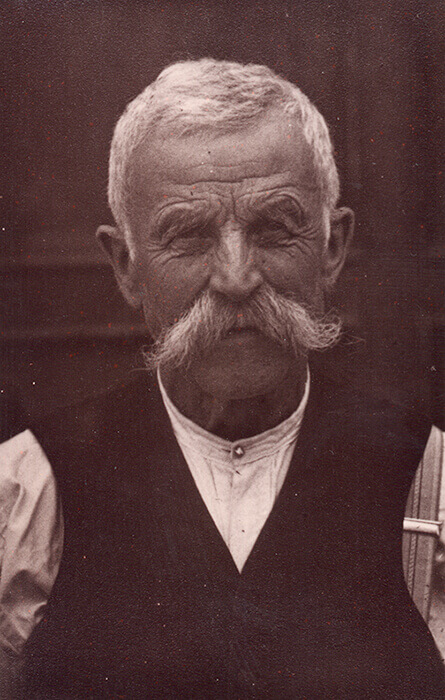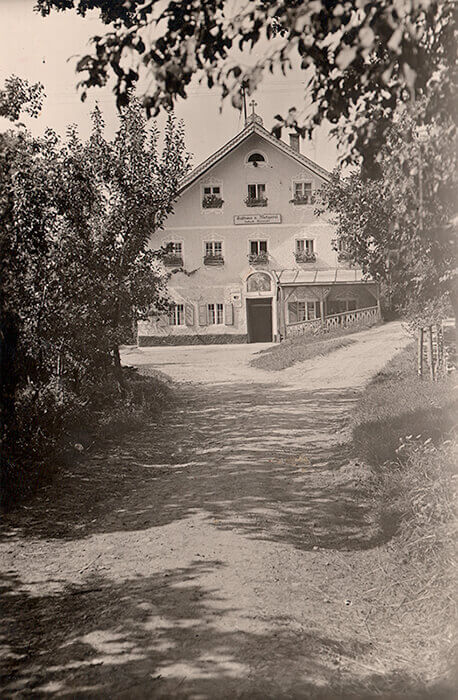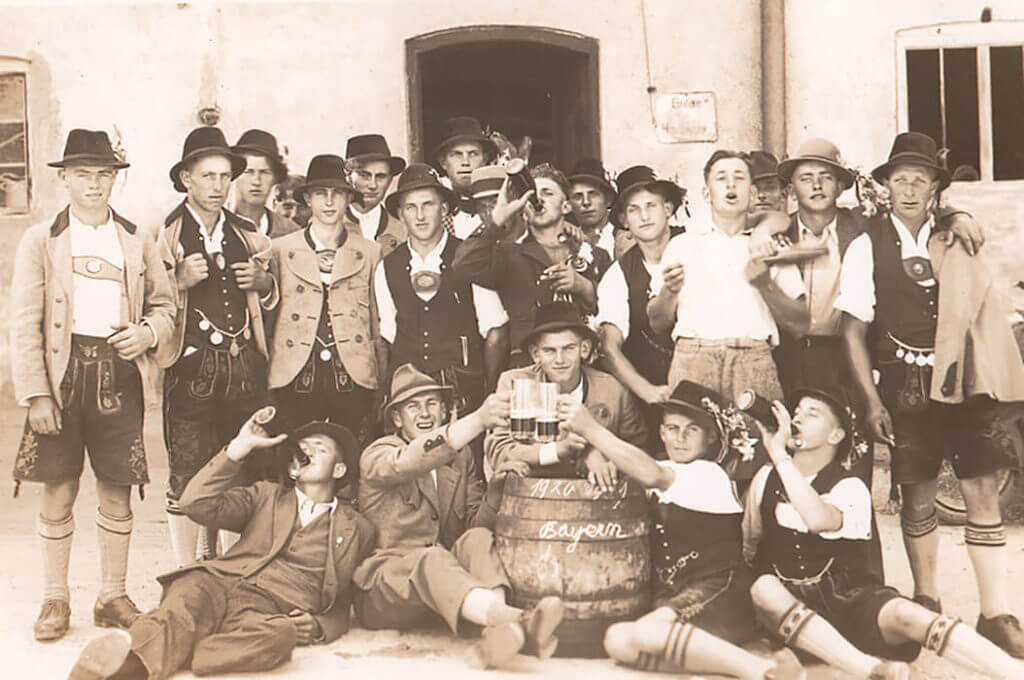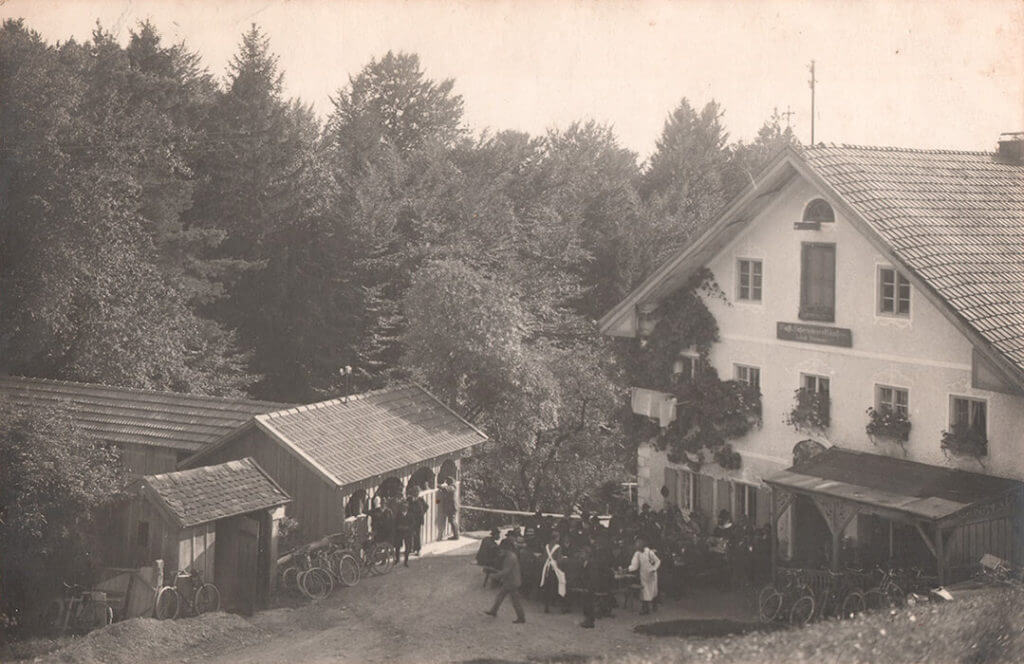Over a century ago, Jakob Kirmair bought some property in Weidach, a small village located in the district of Baiern bei Glonn. Jakob Kirmair was a miller and a butcher. The property that he bought included a few meadows, a small forested area, a pen for cows and chickens, a small butcher’s shop, and a tavern – a tavern with a parlor and a large dining hall. In 1905, Jakob Kirmair and his wife Anna named their tavern Klinglwirt and opened it for business.
The new store was a true tavern, which meant that people could also order food there. For example, Wollwürschte with mashed potatoes, roasted pork with sauerkraut, dumplings, aspic and small cakes for dessert. The brewery delivered the beer once a week by a coach pulled by two horses. There was no set menu back then, it was just what was seasonal and available that was cooked, five or six different dishes each day.
Every year for Waldfest (Forest festival) the Young Men’s Club would build a bowling alley made from wood over a ditch next to the house. After the men knocked the pins down, the children would set the pins up again for them. In the village if you had something to celebrate or if it was a special occasion (like births, weddings, confirmations, etc.), everyone could be found at Klinglwirt. Old men formed traditional clubs at the tavern, the Rock ‘n Roll bands and dance groups rehearsed in rooms above the hall. Trachtler practiced the Plattln (slapping of the knees & thighs clad in lederhosen!). In the parlor, people would play Schafkopf (a card game).
During the Second World War the books from the Bavarian State Library were brought to Klinglwirt to be kept safe from the bombs. Books were restored in the hall and the restorers were able to receive their needed recovery in the taproom.
The founder of the original Klinglwirt, is the great-grandfather of the owner of today’s Klinglwirt. He was the life & soul of the place, a humorous man, a great friend and very popular with everyone in the town. His youngest daughter, Babette, took over the running of the establishment in 1946, together with her husband Jakob. When Jakob died in 1967, Babette continued running Klinglwirt with her three children.
Ten years later, Anna’s oldest, Anna, took over the inn and as with the past generations her children Sonja and Werner grew up in that environment. They quickly learned the wonders of always having a freezer stocked with ice cream and always being able to have fresh bread rolls around. They would sneak into the hall in the evenings and watch the theatre people rehearsing. They would spend time with their grandmother watching her cook vanilla sauce for the steamed dumplings in huge black cauldron and admire their mother’s way of smoothly running the business. From time to time the children were also introduced to the inn’s regulars. And with the brutal honesty that only children have, Sonja would often loudly proclaim, “my mother said you should all go home now.”
When Sonja was 10 years old, Anna decided to spend more time with her children, so she handed over the business to her older brother Jakob. In 1987 he reluctantly gave up Klinglwirt much to the regret of the local community. But a quarter of a century later, Sonja Obermeier decided to open up Klinglwirt again, but this time in Haidhausen in Munich. She wanted to revive the old traditions that made Klinglwirt so special.




